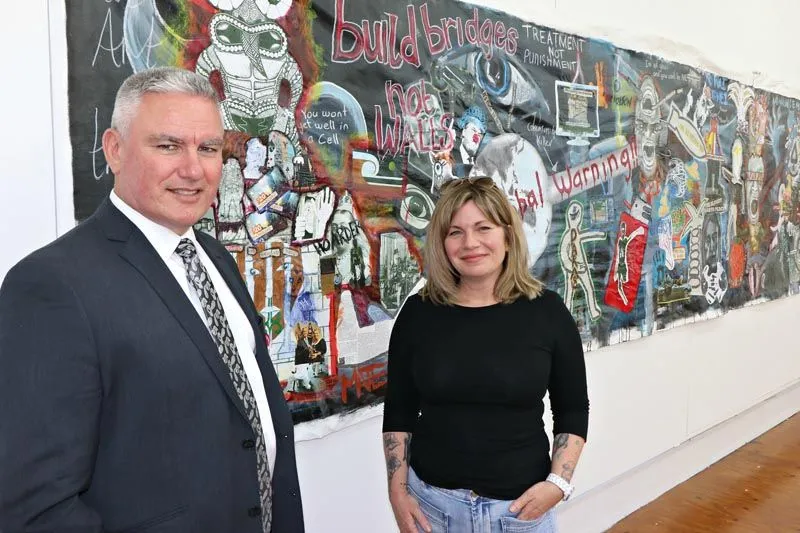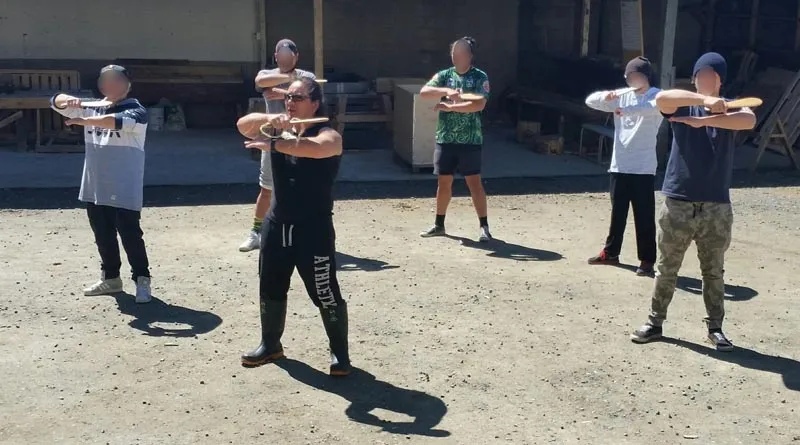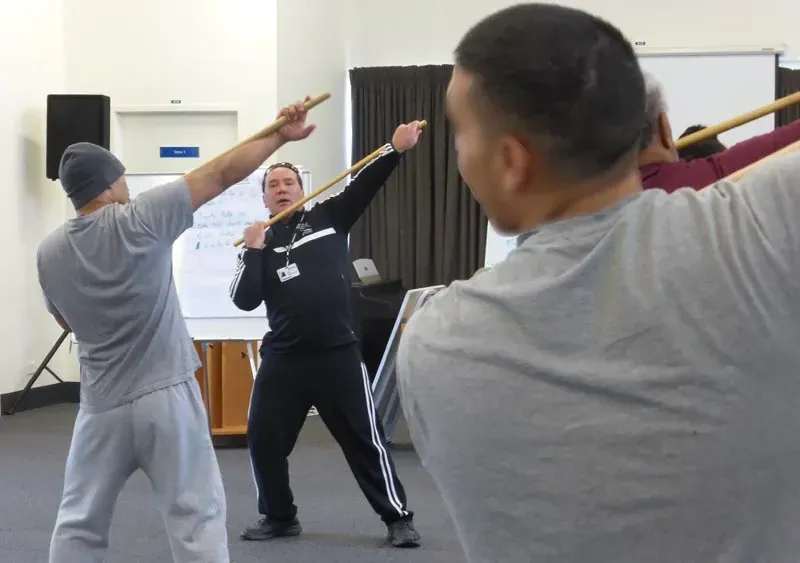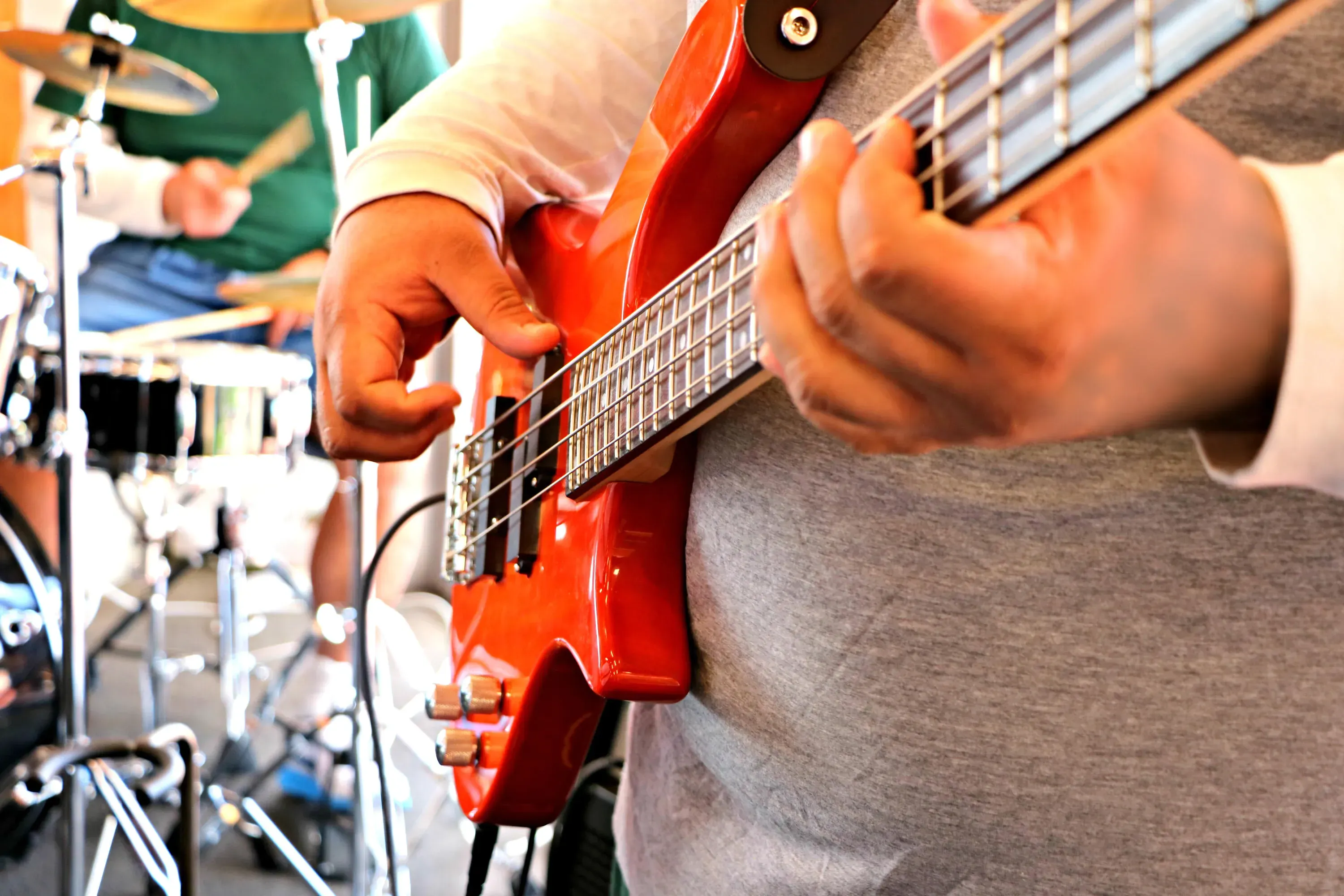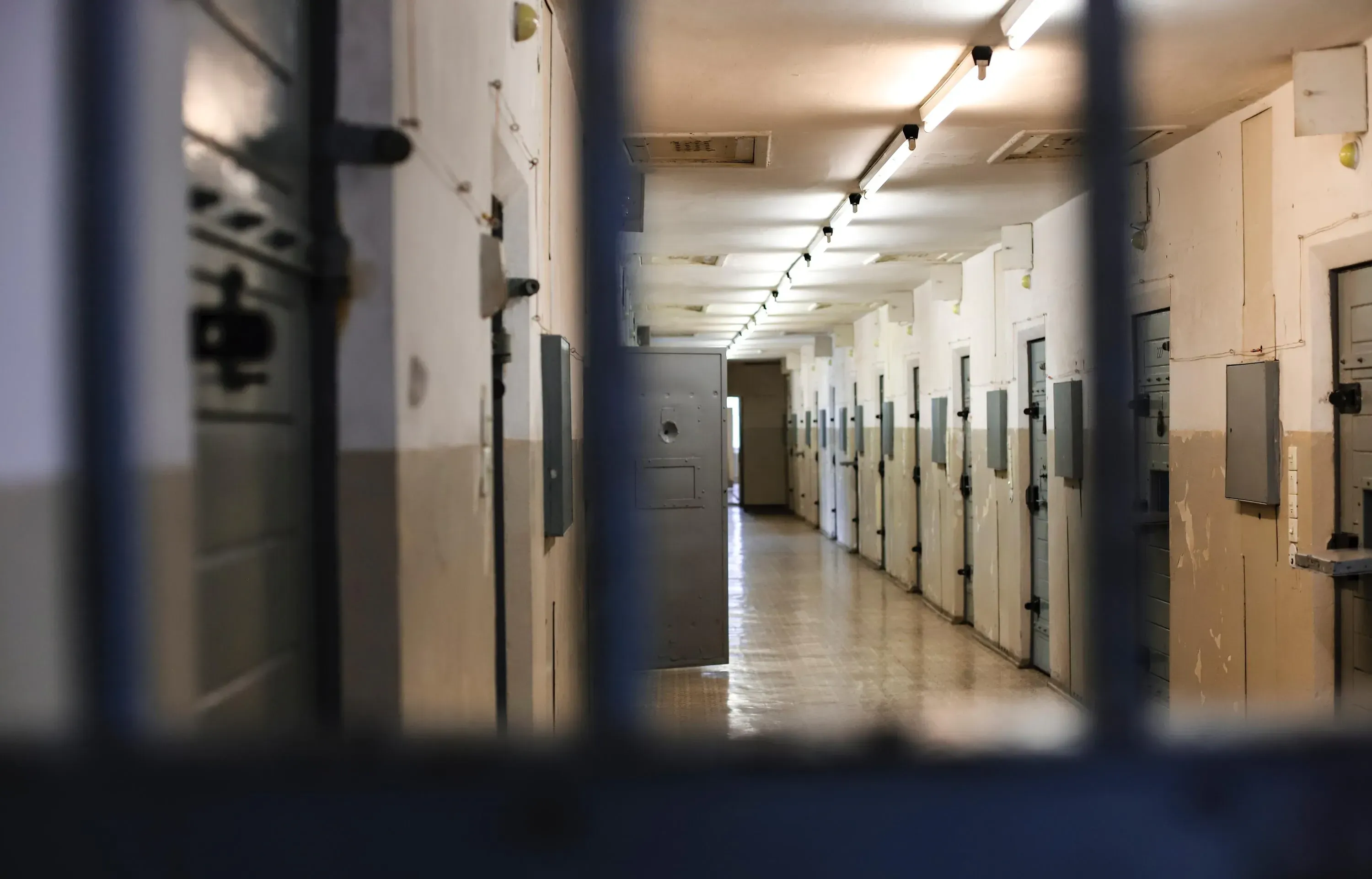Art Behind Bars
Written by

In lockdown, there were a lot of jokes and memes about feeling like prisoners - except with Netflix. But what is it really like to be locked up - and does art have the same impact in prison that it did for so many New Zealanders during the height of COVID?
Tuesday night’s Te Putanga Toi Arts Access Awards 2020 celebrated the extraordinary work of those who bring arts and creativity to where it otherwise would not - or could not - make an impact. Among the many worthy recipients, the areas you’d expect to find covered; the disabled community, mental health and wellbeing.
One of the features was the acknowledgement of a different kind of lack of access - access for those whose freedoms have been restricted intentionally in correctional facilities.
Why it's important
A 2016 report, published by the Department of Corrections, showed that:
-
Nearly all (91%) prisoners had a lifetime diagnosis of a mental health or substance use disorder and 62% had this diagnosis in the previous 12 months
-
Female prisoners were significantly more likely to have a 12-month diagnosis of any mental disorder than male prisoners (75% compared to 61%)
-
Prisoners were three times more likely than the general population to have a 12-month diagnosis of any mental disorder (62% compared to 21%).
These sobering statistics put into stark reality the issues with wellness and mental wellbeing faced in Aotearoa’s prisons. Which makes it all the more important for art to find its way through.
A right, not a privilege
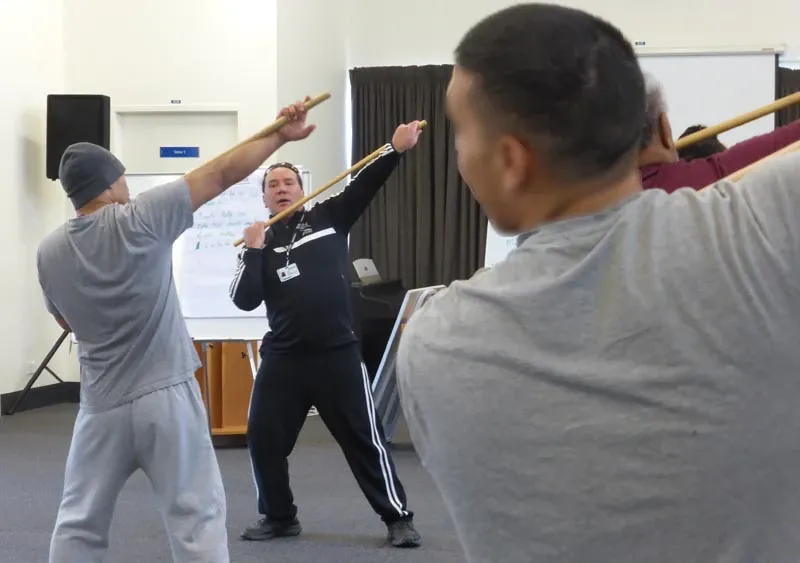
Rue-Jade Morgan teaches a tikanga programme called Te Hōkai Manea Tipuna, which means the glowing footsteps of our ancestors, at Otago Corrections Facility. The programme has a strong emphasis on Māori weaponry and martial arts – mau rākau, mau patu and tī rākau – as well as kapa haka, waiata and whaikōrero.
A prison psychologist was stumped as “he sees the guys in the prison all the time and they’re usually pretty anti-social, but some days they’re fizzing and filled with energy and positivity. And when he looks at their notes he sees ‘Saw Jade’ written in them.”
Unlike most people running similar programmes, Morgan has also spent time in prison. The goal, he says of his programme, is to inspire the mostly Māori participants to make positive changes in their lives, and help them to understand who they are and where they come from.
“If you want to find redemption and to rehabilitate then it’s essential to have access to arts and cultures,” Morgan says. “It’s a right, not a privilege, to have access to your culture.”
Art makes a difference
While data is still being collected, anecdotal evidence suggests that those who complete the programme are less likely to return to prison. The programme itself now has a long waiting list.
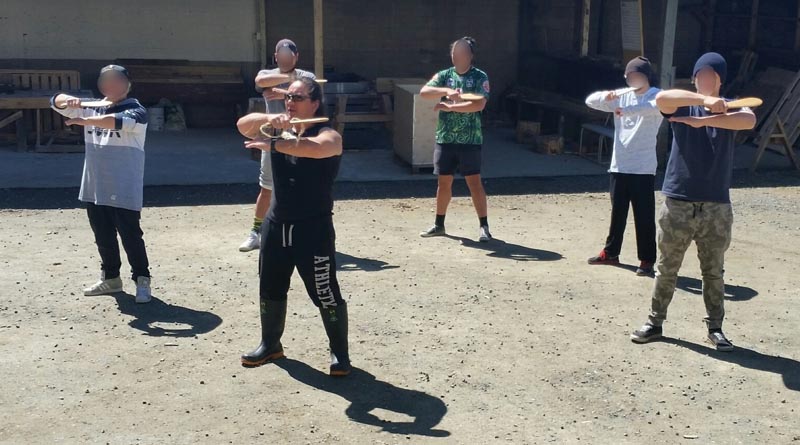
Morgan working with members of his programme.
“Not one programme I have done in jail has ever had such an impact on me like Te Hōkai. That’s not only because of the content but Jade’s ability to connect with his students, share his life with us and inspire us to look within ourselves,” wrote one participant.
“I always look forward to having a check-in with Matua Jade and the rest of the roopu (group),” wrote another.
Both also mention how much fun the classes are. “Laughter is a huge tool in my kete,” Morgan acknowledges. “It means I’m able to speak straight and challenge them. I haven’t read it in a book. I’ve experienced it. I’m also able to role-model the changes I have made in my life that I believe will help them with their family dynamics.”
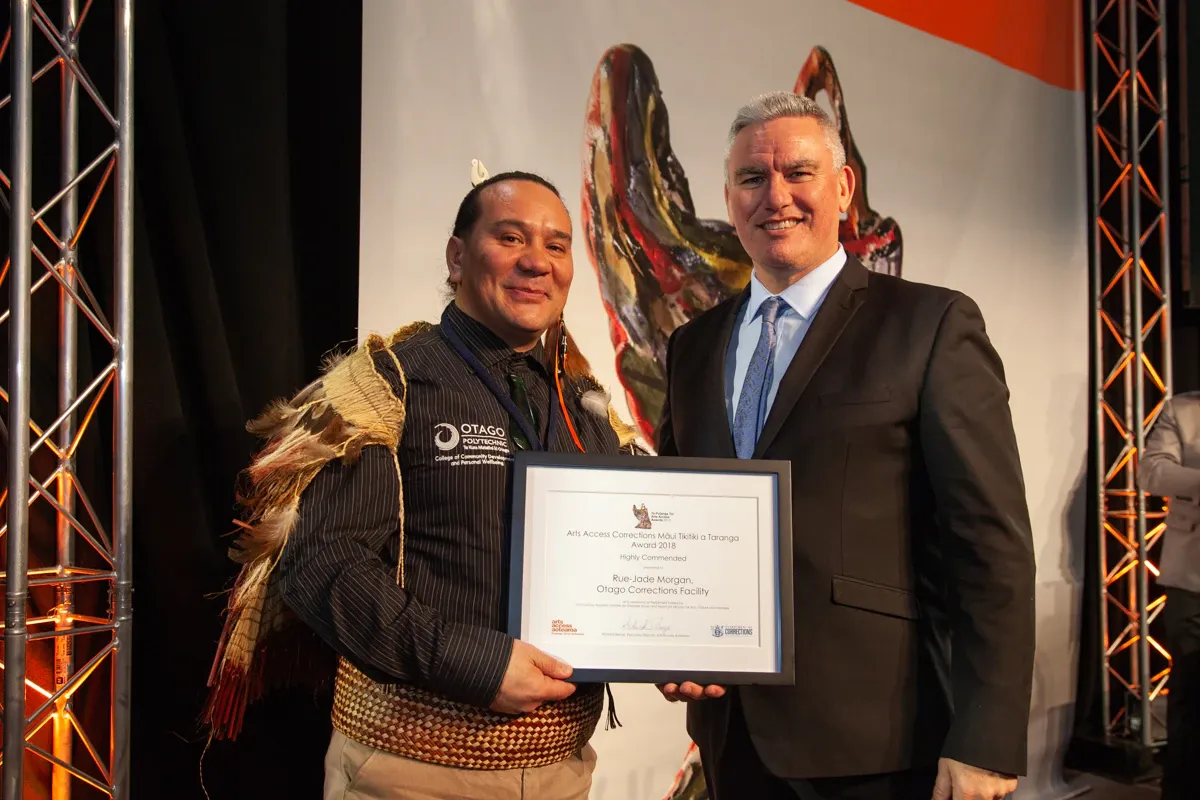
Rue-Jade Morgan has previously been highly commended at the awards before, two years before winning.
The Department of Corrections’ 2019 Hōkai Rangi Strategy shows that:
-
90% of people in prison aged 25 or under have had contact with mental health services at some point in their lives
-
90% of Māori in prison have had a mental health disorder during their lives and 62% in the previous 12 months
-
80% of Māori in prison have had contact with mental health services over the past 10 years.
Presented by the Department of Corrections and Art Access Aotearoa, the Māui Tikitiki a Taranga Award is for someone who demonstrates the quality of Māui - innovation, creativity and leadership - providing cultural inclusion and diversity for people in prison, providing a pathway toward rehabilitation.
It’s about whānau
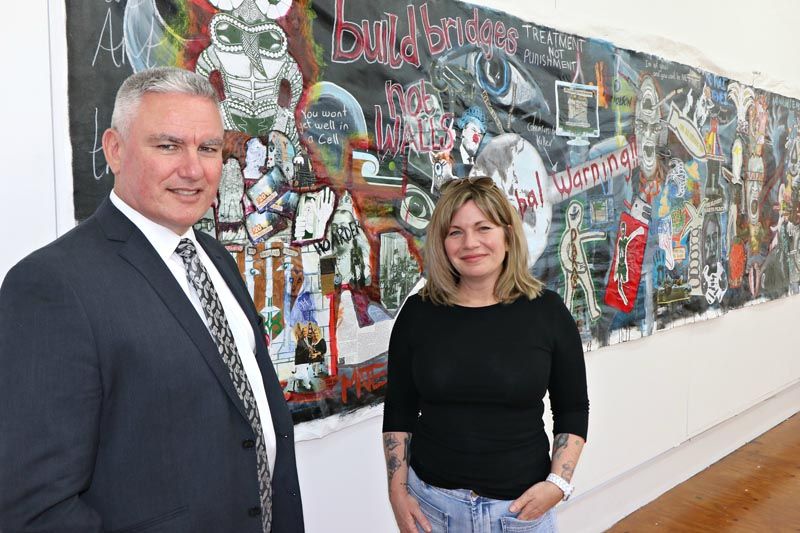
Northland Region Corrections Facility Creative Director Beth Hill with Minister for Corrections Hon Kelvin Davis.
In the same vein, Redemption Performing Arts Whānau and Redemption Arts Tuakana Teina Mentors were awarded the Arts Access Corrections Whai Tikanga Award 2020, for taking leadership roles and mentoring other prisoners in the Northland Region Corrections Facility, including during the COVID-19 lockdown.
This peer support group works collaboratively and autonomously, using the pillars of Corrections’ Hōkai Rangi Strategy as its guide. The positive impact of this group of men provides an example for other prison sites to follow.
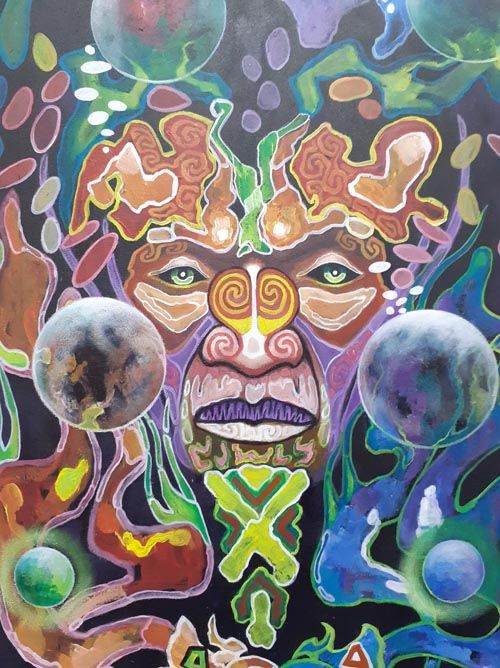
A painting by one of the Redemption Performing Arts whānau.
Beth Hill, Creative Director of Redemption Performing Arts at Northland Region Corrections Facility says the programme is where men can put together performances that they write themselves - in the form of music, haka and waiata. She's thrilled that the team has been honoured in such a way for their mahi. “They’re given the tools to communicate effectively… and it also gives them the autonomy to organise events within their units.” Hill says during lockdown “they were able to support each other through creativity during a very difficult time.”
One of the group members who is training as an arts mentor, Sanity puts it well. “Our group is a whānau. We support each other, we powhiri our visitors, we karakia together, we uphold our culture as a collective and we genuinely help each other to become better men, fathers, sons, brothers and overall better people.”
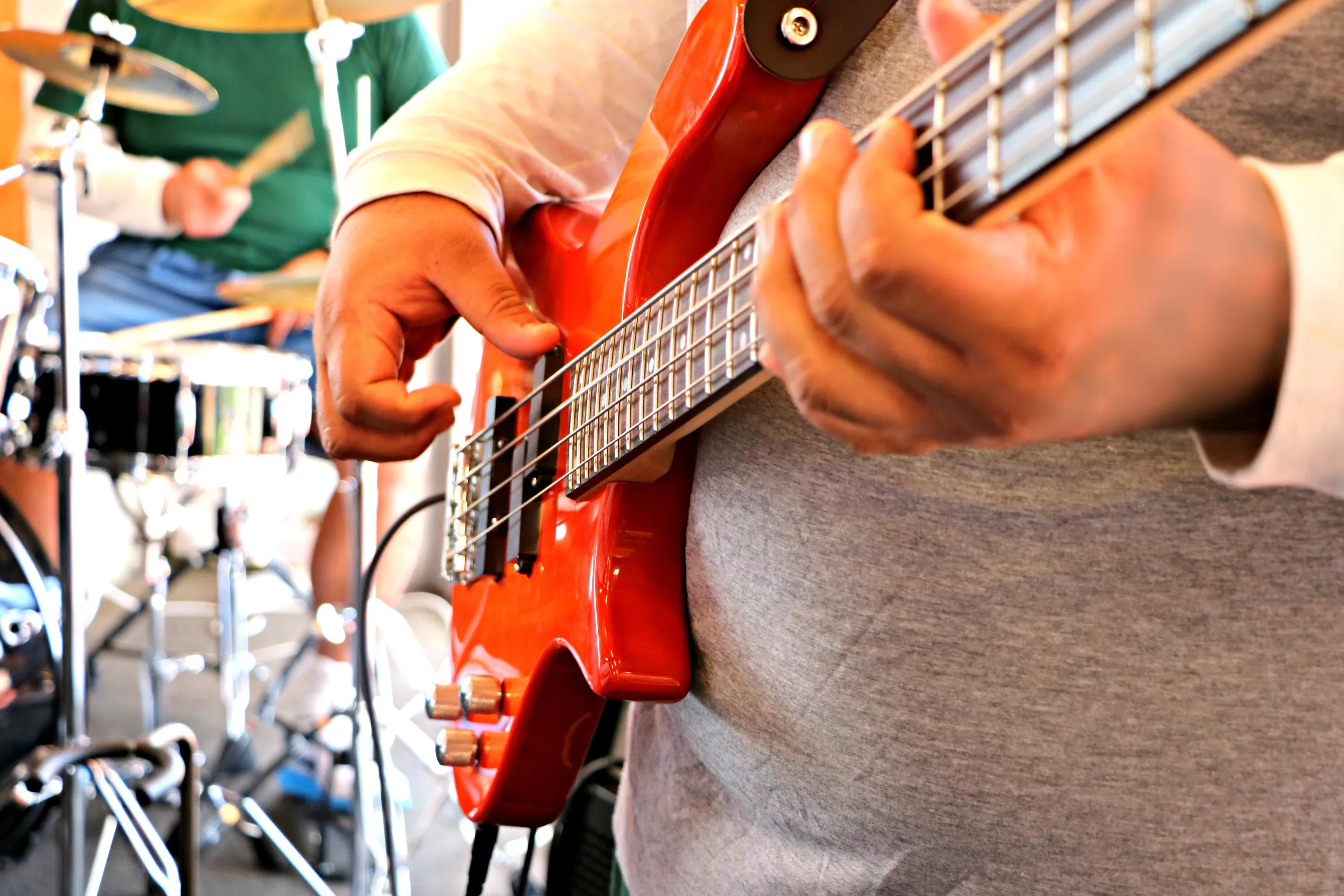
You can still catch the award ceremony on Access Arts Aotearoa, audio description and sign language is used alongside the awards ceremony. It is a warm and welcome reminder of the power of arts and uniting as a community. It’s inspiring to watch and to hear about the mahi of both the winners and the highly commended of the Te Putanga Toi Arts Access Awards 2020.
